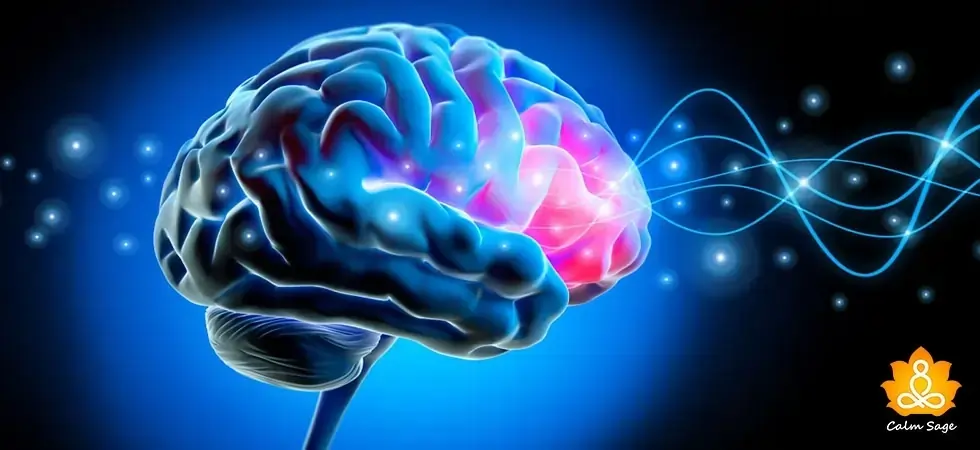“I’m Not Mad, I’m Disappointed”: Why Disappointment Hurts More (Tips To Overcome It)

My biggest fear is when my loved one responds with, “I’m not mad, I’m just disappointed” whenever I make a mistake. We all make mistakes – I mean, can you honestly say that you haven’t forgotten an anniversary or birthday?
There’s always something that weighs heavily on our conscience that causes our loved ones to feel disappointed in us.
When you know you’ve made a mistake, you often wait for an angry response from a loved one, say a parent. No one wants their parents to be angry at them but sometimes we might deserve a little scolding.
While our parents might forgive us – after a good “I disapprove” look – there are times when we are faced with the words, “I’m not angry, just disappointed”.
In my opinion, there aren’t any more dreaded words than these. This phrase can hurt us more deeply than a firm scolding can. While this phrase may leave us feeling dreaded calmness, they often fail to offer forgiveness and reassurances.
In this blog, let’s understand how and why disappointment hurts more than anger and how you can overcome disappointment.
Why Disappointment Hurts More?

There’s something about receiving disappointed looks rather than anger from our loved ones. There’s a psychology behind why disappointment hurts more than anger.
We never think of anger as a respectful emotion, it’s the opposite of love and gratitude. However, receiving disappointment rather than anger leaves us feeling lost and childlike. Something we don’t expect as adults.
When your loved ones are angry, you somehow understand that they are engaged with us and holding us responsible for your actions. However, disappointment can be an unexpected blow that is hard to overcome. In reality, disappointment is a reaction to a child’s wrongdoings.
Brushing off a child’s mistake can hold back the child’s development whereas anger (while scary) can cause a child to be held overly accountable for their actions.
In simple words, anger is an external emotion because it involves the other person. When your loved one feels angry, it’s because you’ve done something that has caused them embarrassment and emotional pain. However, disappointment is a personal experience that is felt when a person’s image in one’s mind is shattered.
Disappointment can be hard to deal with so below I’ve listed some easy ways you can respond to disappointment.
How To Overcome Disappointment?

1. Take A Moment
When your loved one expresses their disappointment, take a moment, and let it be. You need to pause and find a word to describe your feelings. Are you disappointed? Resentful? Or scared?
Label your emotions as it can help you make sense of what you’re experiencing. Honor your feelings even when they come out of disappointment.
2. Don’t Dwell On The Negative
Even disappointment exists on a spectrum. The secret to overcoming disappointment is to not let yourself dwell on negative emotions such as discouragement.
Also Read: You are Not Your Mistakes! Here’s How to Stop Dwelling on Your Mistakes
The longer you dwell on disappointment, the more you’ll be discouraged and later depressed. Turn the tables, let the feelings of disappointment wash over, but then turn those feelings into determination.
3. Learn To Deal With Stress
When you receive disappointment from your loved ones, you’re likely to feel anxious and stressed. To overcome this, try to take a quick anxiety relief break. Take a walk, listen to some music, or meditate. Adding stress to disappointment can make you more likely to lash out in agitation. Try to deal with your stress before moving on.
4. Change Your Perspective
Change your perspective by framing events constructively. Joining an online outpatient drug treatment programs could offer tools to reframe negative thoughts constructively. Our view of what happens is more important than what really happens.
Also Read: Proven Ways to Cope with Uncertainty You Can Not Ignore Them
The disappointment you receive can be used to see the event in a different light. The more real and positive you’re with your event, the better you’ll be able to deal with disappointment.
5. Try Not To Take It Personally
Having different points of view does not translate into insults. Some people might find it offensive when their views are disagreed upon. Understand that having different perspectives is OK.
Not everyone has the same views as you. Try to not take the disappointment you receive personally. Understand that each person is entitled to their views but you are also open to new ideas. It’s OK to not be right all the time.
6. Learn To Develop Positive Thinking
When you are stuck on the negative, it’s hard to lose sight of what’s positive in your life. Our brains automatically focus on the negative first and to be honest, it’s a self-preservation tactic that I can’t blame. However, negativity can be harmful to our emotions.
Take some time to rewire your brain and think positively for once. You can start by creating a gratitude list. List at least 10 things that you found positive in your life every day until your knee-jerk reaction to an event is a positive one.
7. Center Your Emotions
When our emotions are not centered, they can take over our ability to think logically in stressful situations. It can activate our stress hormones and trigger the “flight-or-fight” response.
Before the disappointment starts to turn negative, take a deep breath and center your emotions until you can think straight. You can’t always control the disappointment you receive but you can manage your reaction to it.
8. Get To Know Yourself
To balance your emotions, you need to understand yourself first. The problem with disappointment is that it can derail your emotions and make you doubt your abilities and skewer your sense of self. It’s essential to get to know yourself better if you want to overcome disappointment.
9. Accept Yourself As It Is
Once you know who you are, you can accept where you are and go from there. This means accepting yourself as you are. Self-acceptance can mean engaging in positive self-talk and cheering for yourself.
To respond to disappointments, you need to accept yourself now. Disappointments are a part of your life but you can’t let them linger.
10. Seek Professional Help
Your mental and emotional wellness matters a lot and you need to understand when it’s OK to cross a boundary and when it’s NOT.
When you lose this sense and when the disappointments you receive in your life begin to feel like a burden instead of lessons, you need to seek professional help. A therapist can help you come up with other ways to cope and overcome feelings of disappointment.
Is it Ok if you are disappointed?
We all make mistakes and become subject to “I’m not mad, I’m disappointed” once in our lives. While disappointments are an inevitable part of your life, you need to understand how to not let disappointments bring you down but lift you. Receive disappointments as a lesson rather than a burden.
I hope this blog helped you understand why disappointments hurt more than anger and what to do when someone tells you, “I’m not mad, just disappointed”.
Let me know what you think about this blog in the comments below. You can also drop me a message at info@calmsage.com or on our social media.
Take Care!




















